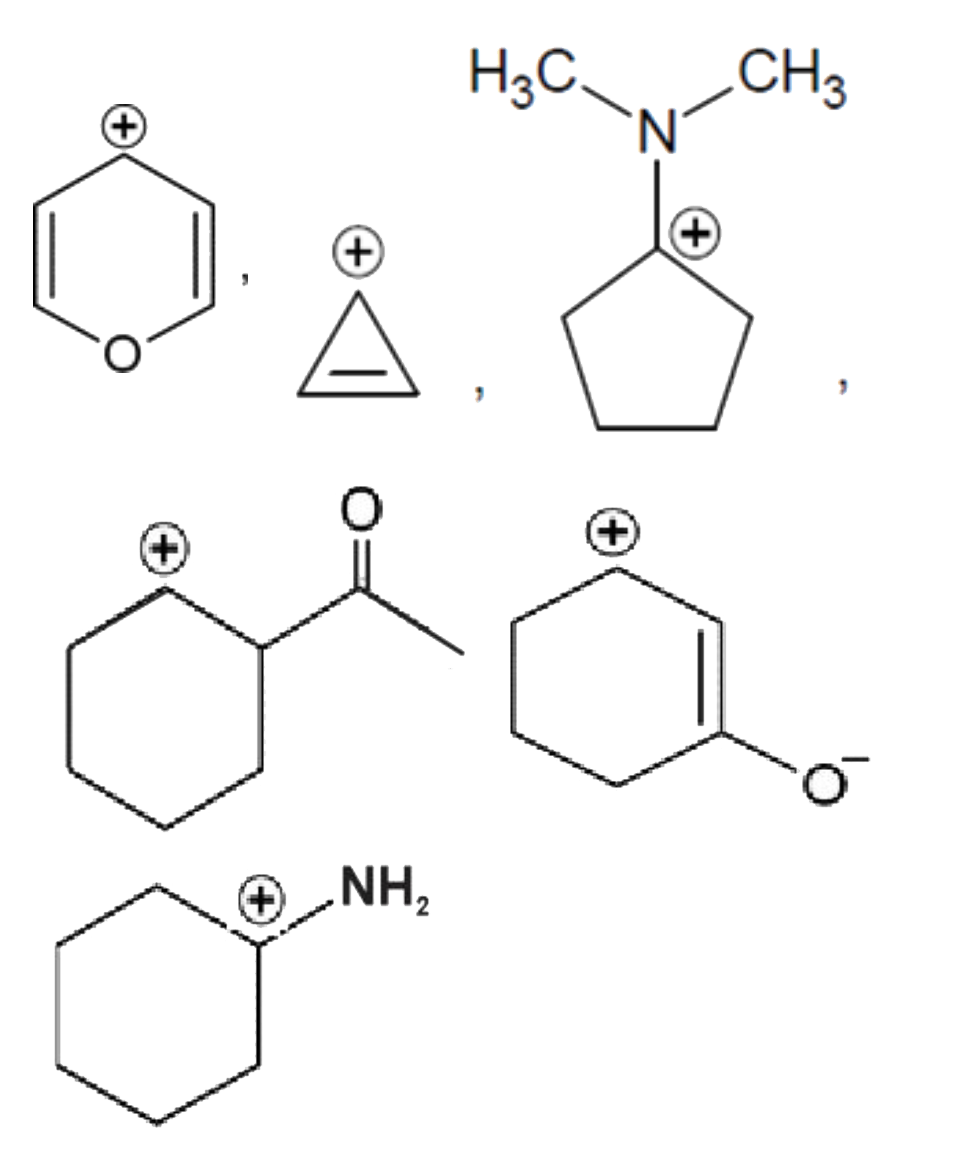Most contributing structure in introethene is :
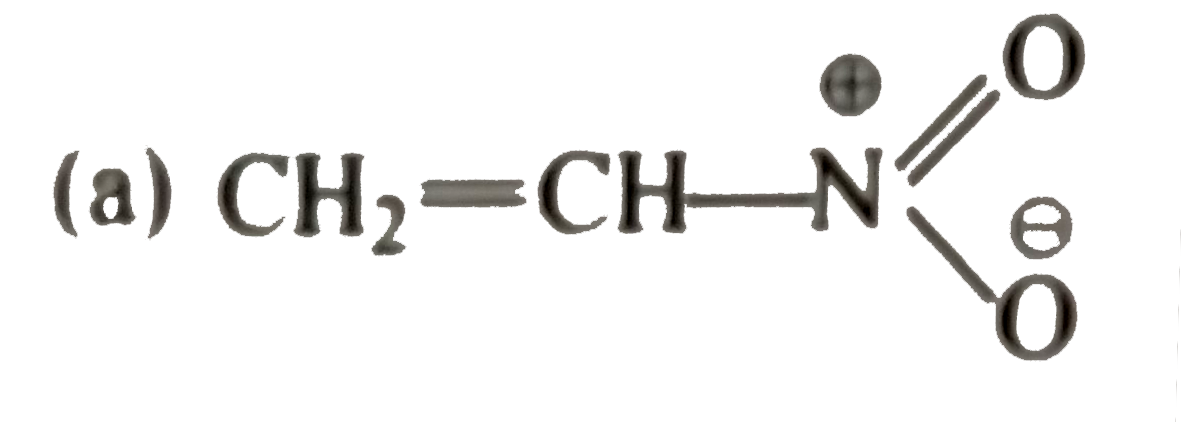

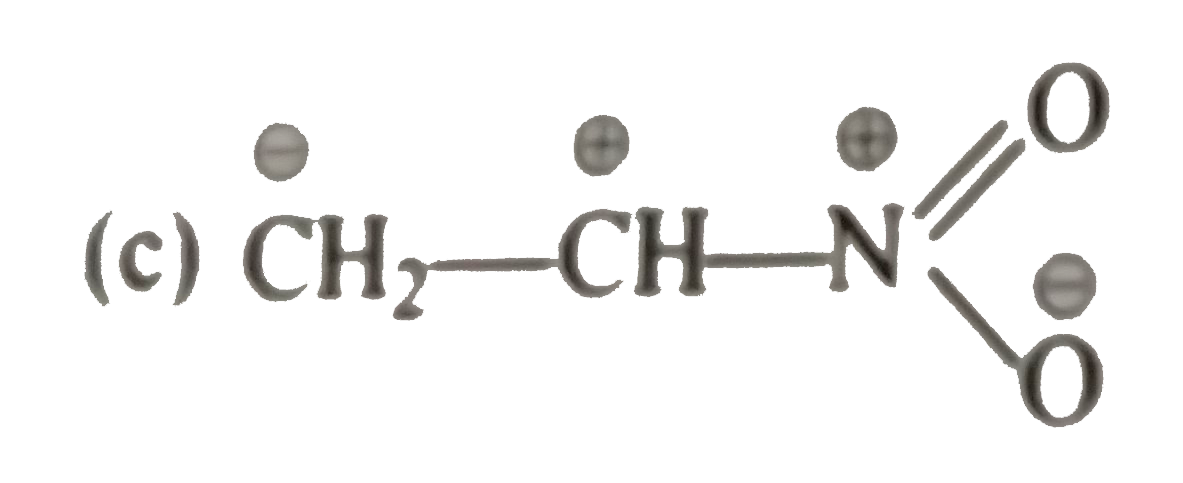
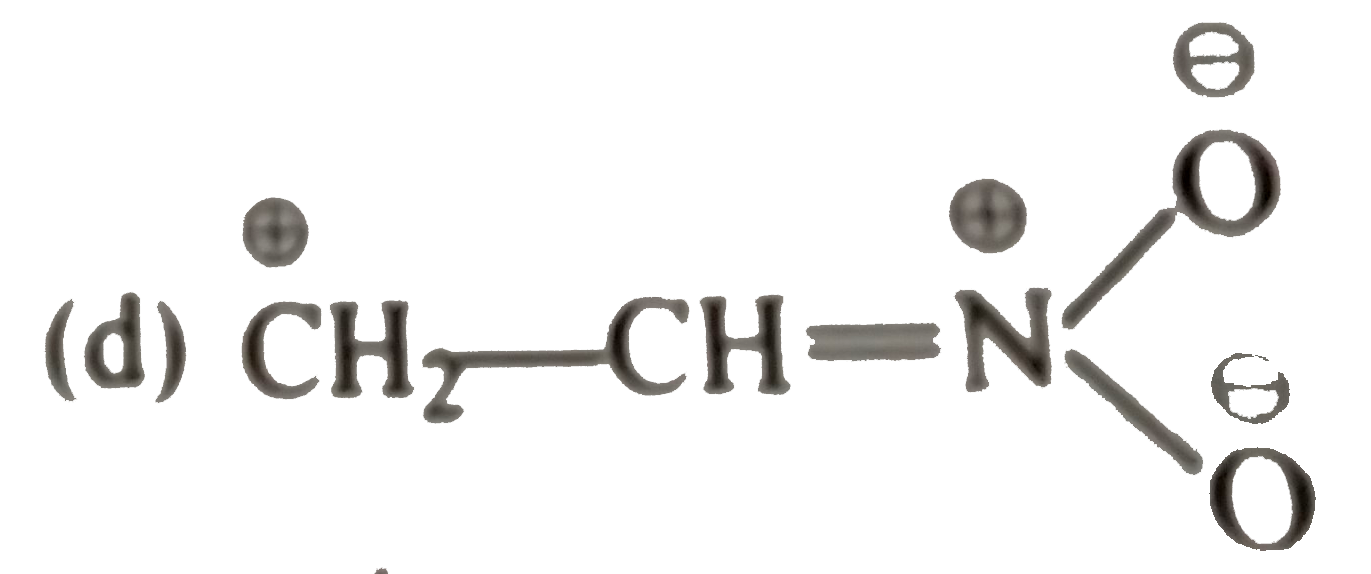
The correct Answer is:A
To determine the most contributing structure of nitroethane, we need to analyze the resonance structures of the molecule. Nitroethane has the formula C2H5NO2, and we can draw several resonance structures to evaluate their stability.
1. Draw the Lewis Structure of Nitroethane:
- Start by drawing the basic structure of nitroethane. Nitroethane consists of an ethyl group (C2H5) attached to a nitro group (NO2).
- The nitro group has a nitrogen atom bonded to two oxygen atoms, with one of the oxygen atoms typically having a negative charge and the nitrogen having a positive charge.
2. Identify Possible Resonance Structures:
- Draw the resonance structures by moving the electrons around. For nitroethane, you can have several resonance forms:
- One structure with a double bond between nitrogen and one oxygen, and a single bond with the other oxygen carrying a negative charge.
- Another structure where the double bond is between nitrogen and the other oxygen, with the first oxygen carrying a negative charge.
3. Evaluate the Charge Distribution:
- In each resonance structure, evaluate the formal charges on each atom. The most stable structure will have the least amount of charge separation.
- Generally, structures where negative charges are on more electronegative atoms (like oxygen) and positive charges on less electronegative atoms (like carbon) are more stable.
4. Assess the Stability of Each Structure:
- Compare the resonance structures based on the charge distribution. The structure with the least formal charge and with charges on the most electronegative atoms will be the most stable.
- The structure with the lowest charge separation and the most neutral character will be the most contributing structure.
5. Conclusion:
- After evaluating the resonance structures, the most contributing structure of nitroethane is the one where the negative charge is on the oxygen atom, and the positive charge is minimized, leading to a more neutral overall charge distribution.
- Start by drawing the basic structure of nitroethane. Nitroethane consists of an ethyl group (C2H5) attached to a nitro group (NO2).
- The nitro group has a nitrogen atom bonded to two oxygen atoms, with one of the oxygen atoms typically having a negative charge and the nitrogen having a positive charge.
- Draw the resonance structures by moving the electrons around. For nitroethane, you can have several resonance forms:
- One structure with a double bond between nitrogen and one oxygen, and a single bond with the other oxygen carrying a negative charge.
- Another structure where the double bond is between nitrogen and the other oxygen, with the first oxygen carrying a negative charge.
- In each resonance structure, evaluate the formal charges on each atom. The most stable structure will have the least amount of charge separation.
- Generally, structures where negative charges are on more electronegative atoms (like oxygen) and positive charges on less electronegative atoms (like carbon) are more stable.
- Compare the resonance structures based on the charge distribution. The structure with the least formal charge and with charges on the most electronegative atoms will be the most stable.
- The structure with the lowest charge separation and the most neutral character will be the most contributing structure.
- After evaluating the resonance structures, the most contributing structure of nitroethane is the one where the negative charge is on the oxygen atom, and the positive charge is minimized, leading to a more neutral overall charge distribution.
Topper's Solved these Questions
- GENERAL ORGANIC CHEMISTRYBook:HIMANSHU PANDEYChapter:GENERAL ORGANIC CHEMISTRYExercise:Level 2 (Q.51 To Q.75)
Explore 25 Videos
- GENERAL ORGANIC CHEMISTRYBook:HIMANSHU PANDEYChapter:GENERAL ORGANIC CHEMISTRYExercise:Level 2 (Q.76 To Q.100)
Explore 25 Videos
- GENERAL ORGANIC CHEMISTRYBook:HIMANSHU PANDEYChapter:GENERAL ORGANIC CHEMISTRYExercise:Level 2 (Q.1 To Q.25)
Explore 25 Videos
- CHEMISTRY IN DAILY LIFEBook:HIMANSHU PANDEYChapter:CHEMISTRY IN DAILY LIFEExercise:Integer Answer Type Problems
Explore 7 Videos
- HALIDESBook:HIMANSHU PANDEYChapter:HALIDESExercise:Subjective Type Problems
Explore 10 Videos
Similar Questions
Knowledge Check
Less contributing structure of nitroethene is :
A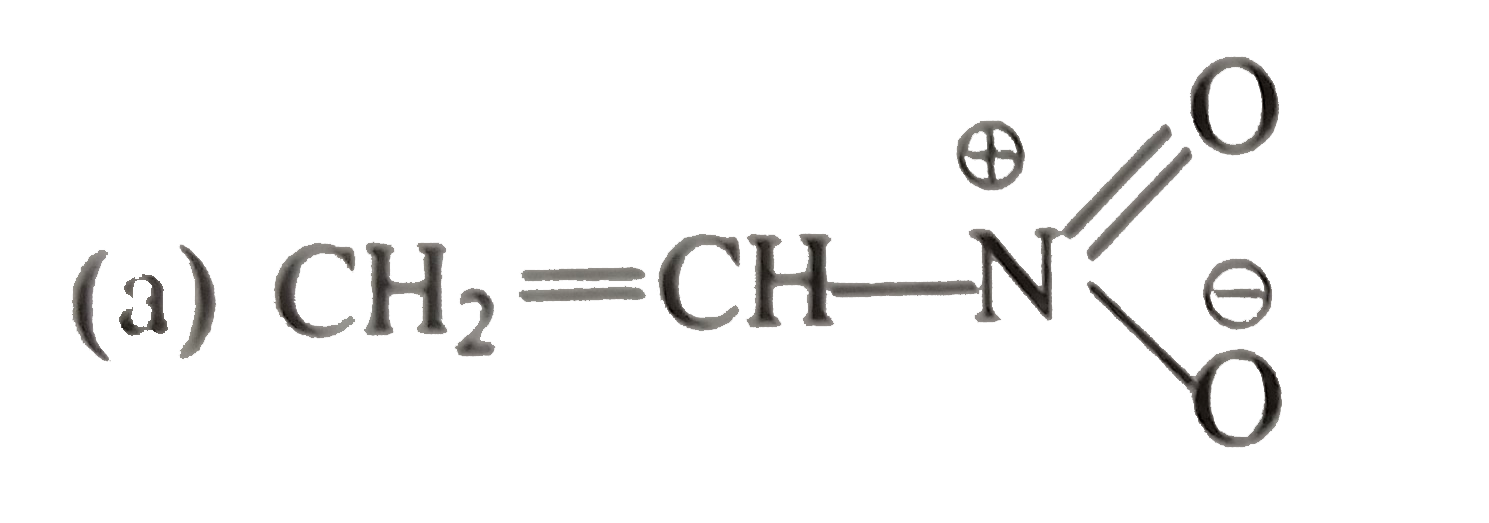 B
B C
C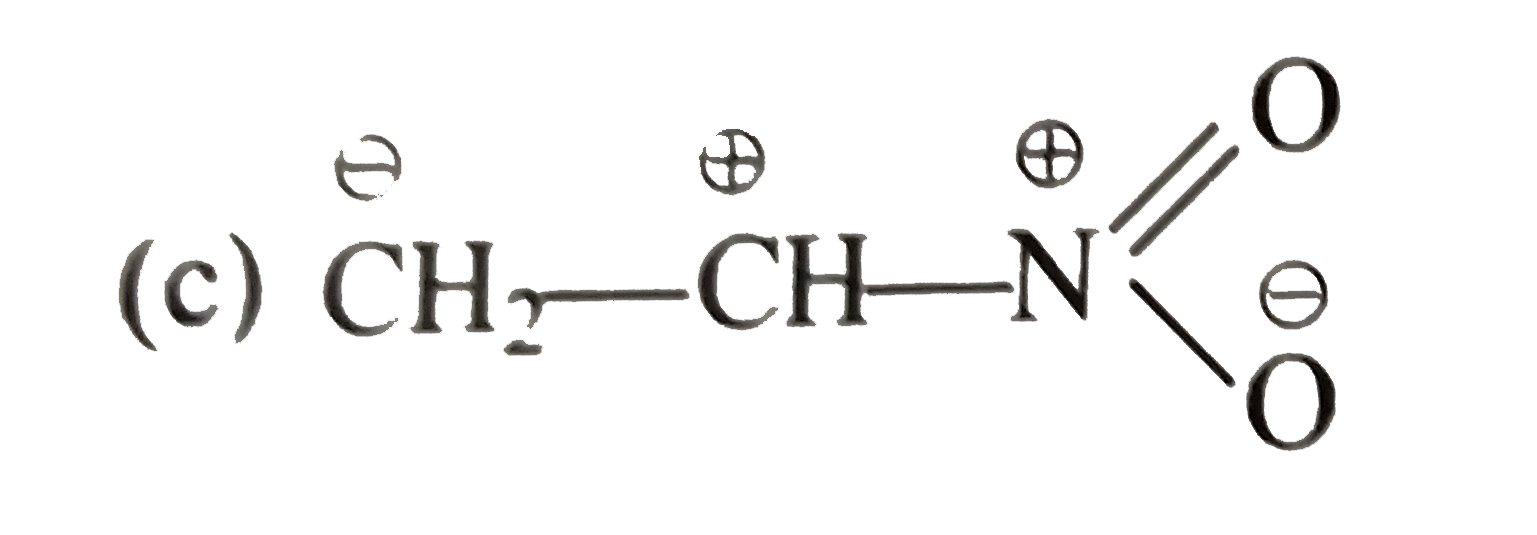 D
D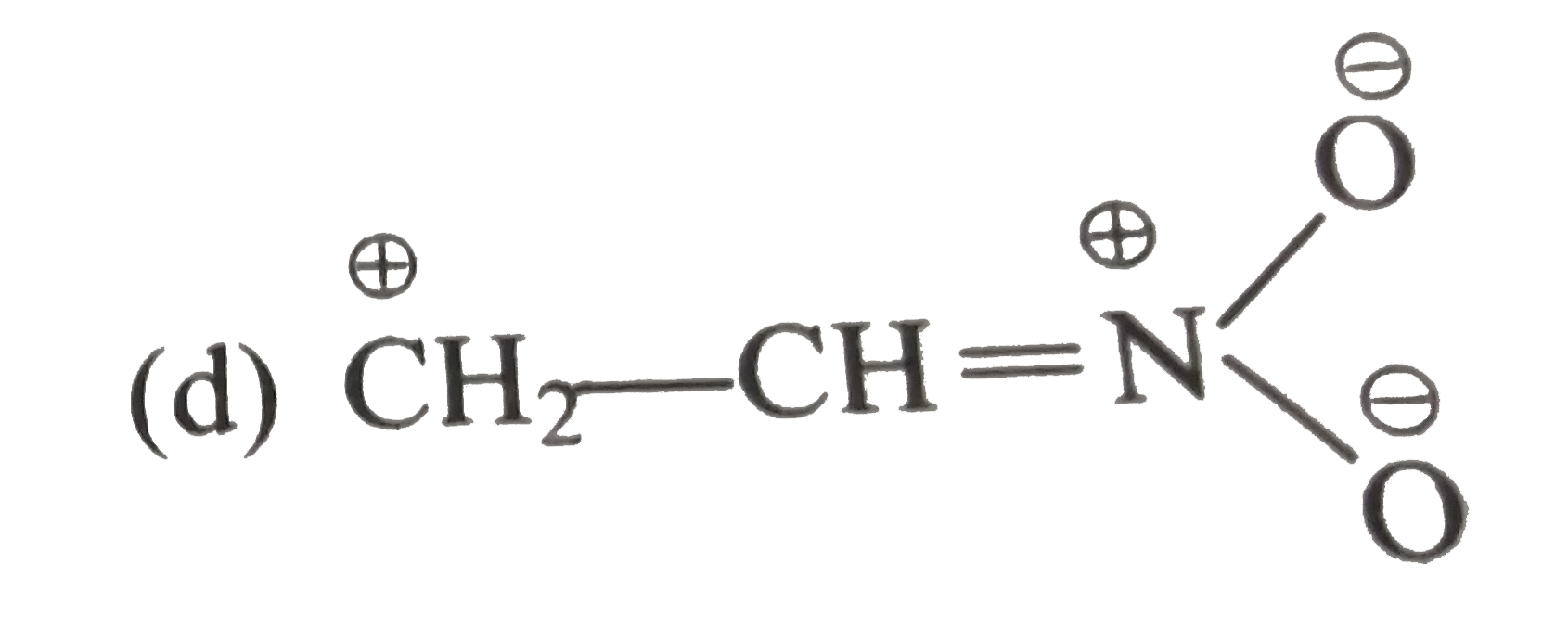
Least contributing resonating structure of nitroethene is :
A B
B C
C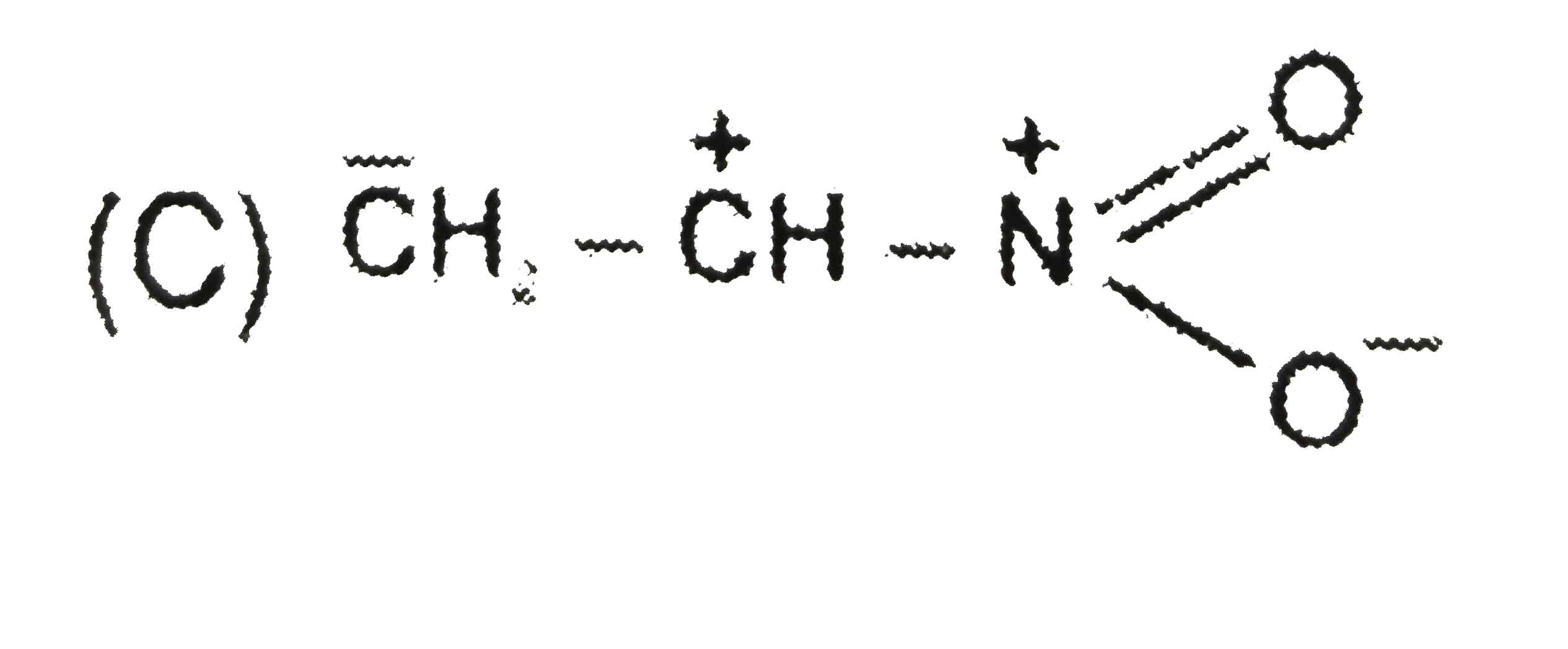 D
D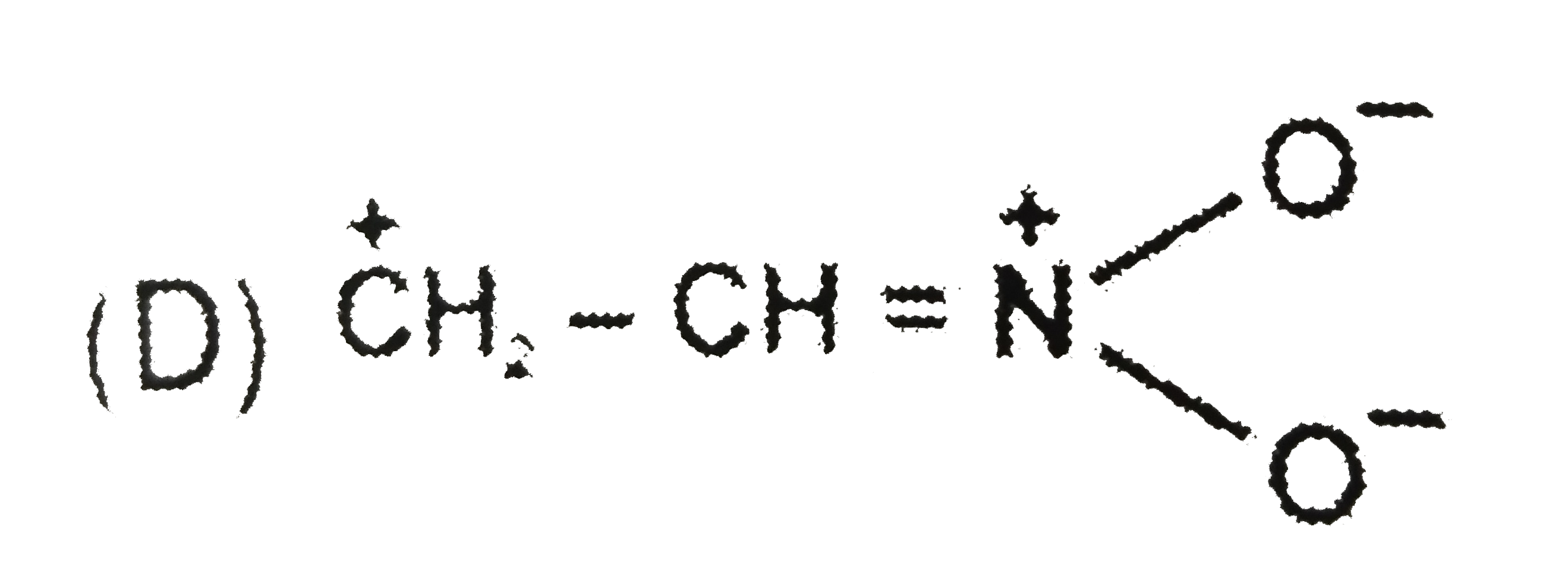
Least contributing resonating structure of nitroethene is:
A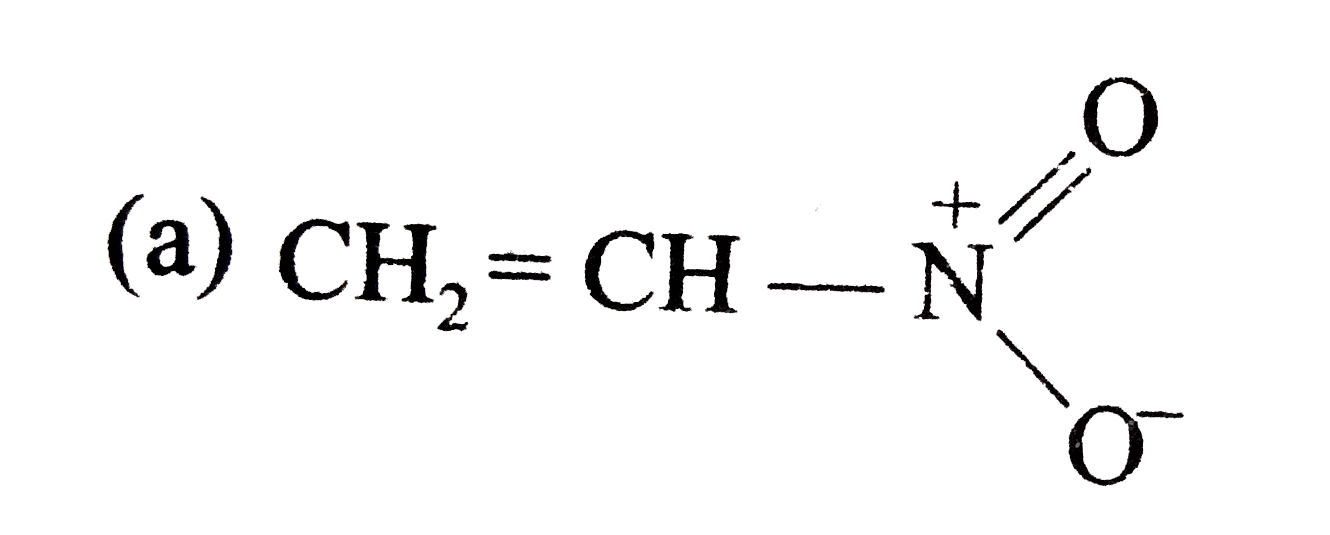 B
B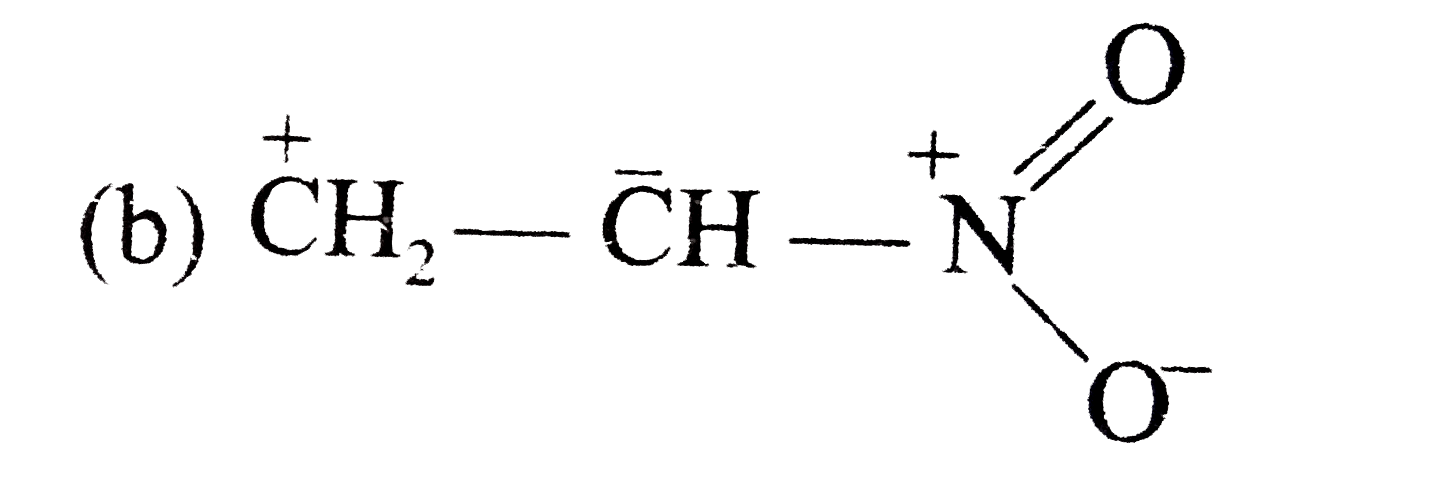 C
C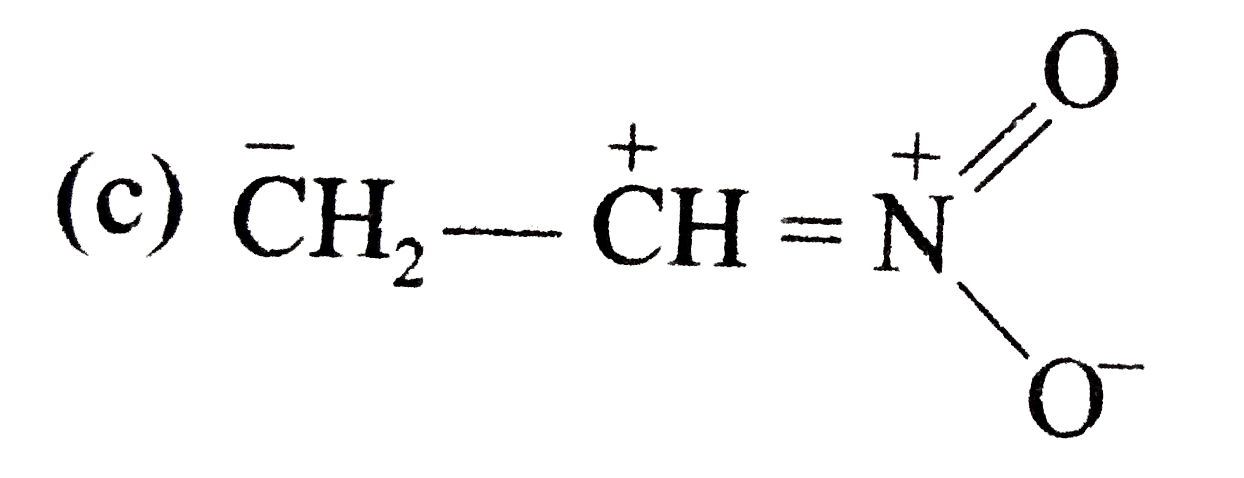 D
D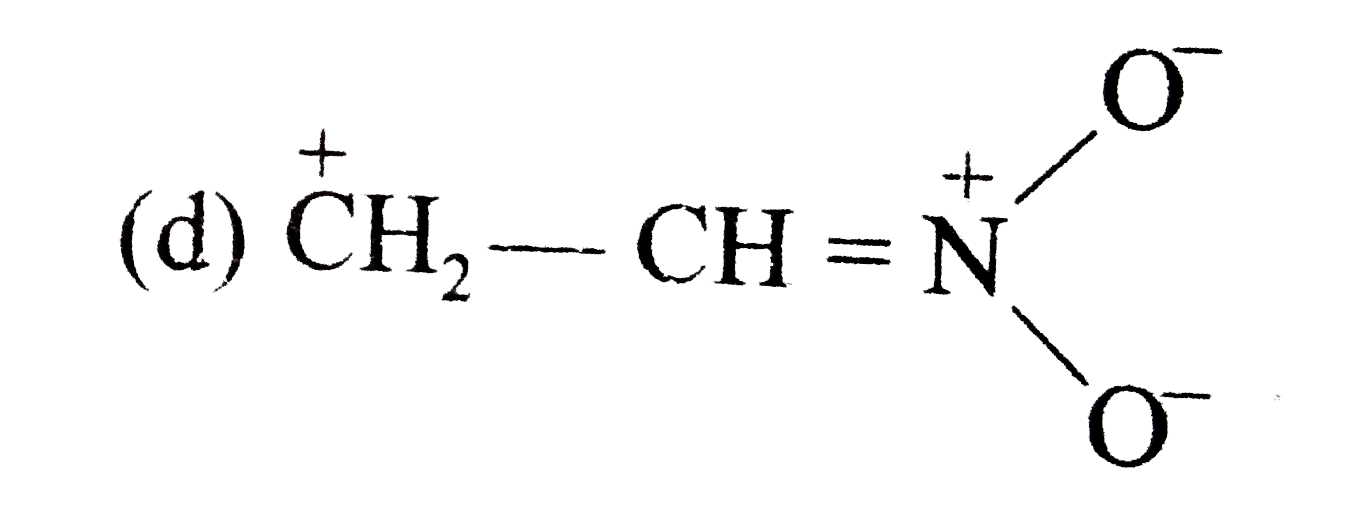
Write resonating structures for CH2=CHCHO. Indicate relative stability of the contributing structures :
View SolutionThe total number of contributing structures showing hyperconjugation (involving C−H bonds) for the following carbocation is
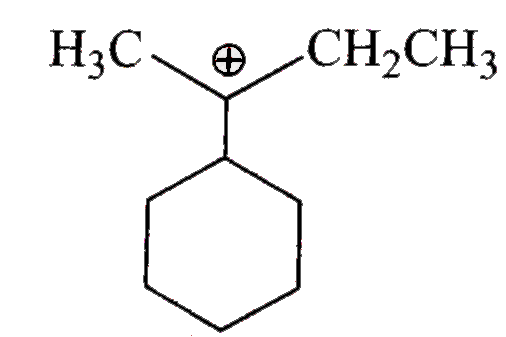
View SolutionAssertion . The resonance hybrid is more stable than any of the contributing structure .
Reason . The contributing structures contain the same number of umpaired elelctrons and have the real existance.
View SolutionAssertion : The carbonic acid is stronger acid than phenol .
Reason : The hybrid of bicarbonate ion has two equivalent contributing structures, while hybrid of phenoxide ion does not contain such equivalent contributing structures.
View SolutionThe total number of contributing structures for hyperconjugation in propene is
View Solution


